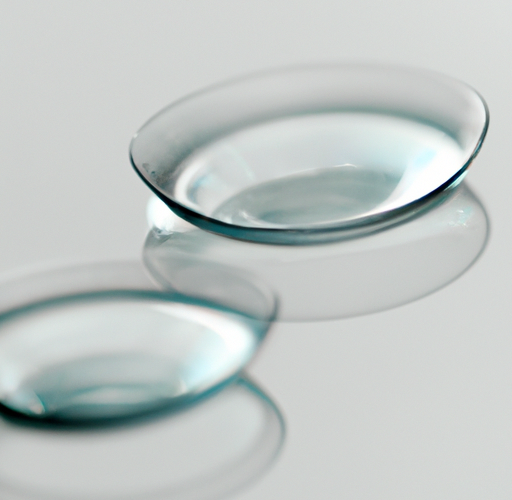Contact Lens Prescription for High Hyperopia: A Guide for the Lovably Blind
So, you’re living your best life with high hyperopia, but you want to switch things up and try out contact lenses. What should you know before you dive headfirst into the world of prescription lenses? Here are some things to keep in mind:
What is High Hyperopia?
First things first, let’s define high hyperopia. Essentially, hyperopia is a fancy way of saying you’re farsighted. The higher the level of hyperopia, the farther away objects need to be in order for you to see them clearly. In other words, you’re probably squinting a lot to see things up close. That’s a tough life!
Why Choose Contact Lenses?
Glasses are all well and good, but sometimes you want to showcase your beautiful eyes and your glasses frames are just getting in the way. That’s where contact lenses come in – no obstructions, just clear vision and your sparkling peepers.
The Benefits of Contact Lenses for High Hyperopia
With the right prescription, contact lenses provide clear vision without the hassle of glasses. Compared to glasses, contact lenses are less bulky, more discreet, and allow for a wider field of vision.
What Type of Contact Lenses are Available for High Hyperopia?
There are various options for contact lenses, but here are a few of the most common types used for high hyperopia:
– Gas-permeable lenses: These lenses have a hard, rigid center with a softer outer edge for added comfort. These lenses can correct higher levels of hyperopia and can last longer than other types of lenses if cared for properly.
– Toric lenses: These lenses are designed specifically for people with astigmatism paired with hyperopia. Toric lenses have a special shape to correct for the irregular curvature of the cornea.
– Spherical lenses: These are the most common type of contact lens and are often used for mild to moderate hyperopia.
Tips for a Smooth Transition to Contact Lenses
– Take it slow: Don’t expect to wear your contacts for 10 hours straight right off the bat. Start with shorter periods of wear and gradually increase as your eyes adjust.
– Keep them clean: Proper contact lens hygiene is crucial to avoid eye infections and other complications. Always wash your hands before handling your lenses and follow your optometrist’s recommended cleaning regimen.
– Keep some backup glasses on hand: Accidents happen, and you don’t want to be caught without a backup plan. Keep a pair of glasses handy just in case your lenses become uncomfortable or if you lose them.
In conclusion, contact lenses can be a fantastic choice for those with high hyperopia looking for a clear vision without glasses. With the right prescription, contact lenses can allow you to sport a new look and make your eyes pop. Take it slow, listen to your eye doctor, and enjoy the world of contact lenses!

